- Details
- Written by: Kamran Mofid
- Hits: 1914
Slow Food for the Common Good to save the World
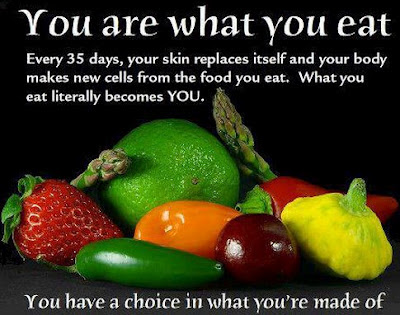
Photo:knowledgeoftoday.org
The way we eat, the food we eat, is a guidance on how seriously we are taking care of ourselves and the Mother Nature
The pertinent question is: How are we going to teach slow-food values in a world consumed with fast food culture?
"What we eat is one of the most powerful drivers behind most of the world's major environmental issues, whether it's climate change or biodiversity loss."-Joseph Poore, University of Oxford
“Let Thy Food Be Thy Medicine, And Thy Medicine Be Thy Food.” -Hippocrates, The Father of Medicine
What is Slow Food for the Common Good?
Good, Clean and Fair Food
Food that is Good for People, Good for the Planet
Sustainability, Responsibility, Eco-Friendliness, and…
Slow Food for the Common Good envisions a world in which all people can access and enjoy food that is good for them, good for those who grow it and good for the planet.
‘Slow Food was started by Carlo Petrini and a group of activists in the 1980s with the initial aim to defend regional traditions, good food, gastronomic pleasure and a slow pace of life. In over two decades of history, the movement has evolved to embrace a comprehensive approach to food that recognizes the strong connections between plate, planet, people, politics and culture. Today Slow Food represents a global movement involving thousands of projects and millions of people in over 160 countries.’-Slow Food: The History of an Idea
“Go Slow in Your Life. Go Slow in Your Community”
How can you be a responsible consumer? A good consumer is always aware of where their food comes from and what their food contains.
The Slow Food movement encourages “responsible consumers [to] favour seasonal, local food, cook meals and avoid processed and industrial products. Industrial products such as instant and fast foods should be avoided because they generally involve high carbon footprints, long unsustainable food chains, an unethical financial exploitation of farmers and the destruction of local economies and markets, high levels in waste production and the addition of artificial and unhealthy flavour enhancers.”
The Slow Food movement provides concrete steps: “One can become a responsible consumer by buying the primary ingredients instead of an instant meal, buying food from farmers markets, getting involved in gardening and urban gardening or community-supported agriculture projects or favouring sustainable packaging and growing methods as well as local varieties and a diverse diet.”
Following the Slow Food principles, another important manifesto, the Eataly’s Manifesto, says: “We are in love with food.”...Continue to read this beautiful story.
Goodness gracious me, What is going on? What is this ‘Modern World’ doing to us all?
Happiness is to Do Nothing: 'When Doing Nothing Is Doing Everything’
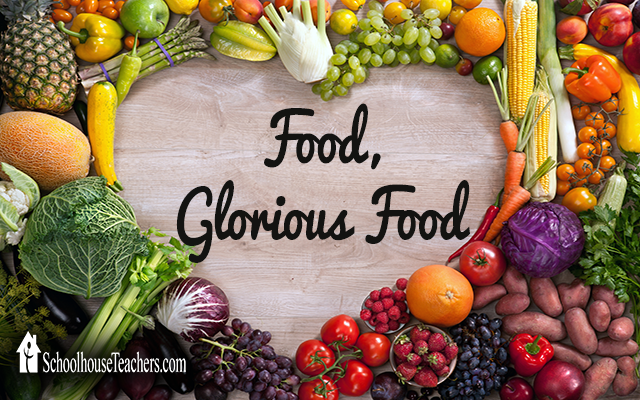
And All We Eat is Junk Food!
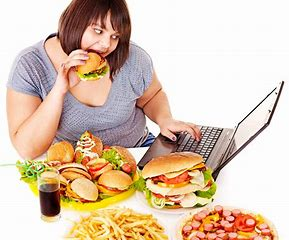
Photo:bing.com
First, food for thought, Exciting Your taste buds!
Why food is a really big deal!
‘It’s easy to forget the power of what is on our dinner plate.
Between the Instagram post, or the quick fix meal, the snack at our desk or the breakfast on the run – it’s not a surprise we might overlook the incredible potential in our food. What and how we eat, and the systems that produce it.
Our food is more than simply a source of calories – or even a labour of love. As our global community faces some serious and time-bound health challenges, what’s being served is a world of opportunities. Let me share with you just six reasons why...
Food is our most powerful narrative.
‘When we look across our major global challenges — and we have some very serious ones — it can seem overwhelmingly complex to the point we lose our appetites for action. Climate change is happening around us. Water shortages affect 330 million people in India. Two billion of us wake up every day overweight and yet half a billion continue to go hungry. The Great Barrier Reef is under severe stress. Some estimate we have more plastic in our world’s oceans than fish. War and conflict seem a daily presence in our media.
The world is a buzz of depressing, seemingly hopeless, diverging challenges. But I challenge you. Look beyond the buzz. Don’t be distracted from the micro, look at the bigger picture. What becomes clear?
All of these challenges relate back to something simple. Something many of us enjoy every day. Something we all seek, obsess over, photograph and devour. Food.
Over-consumed, often wasted, poorly managed and needlessly unhealthy. We cannot solve the world’s problems, without first solving food. Or another view: food is our best opportunity for getting our planet back on track.
Bon appétit.’-Dr Sandro Demai
Seeds, kale and red meat once a month – how to eat the diet that will save the world
Dale Berning Sawa, Via The Guardian
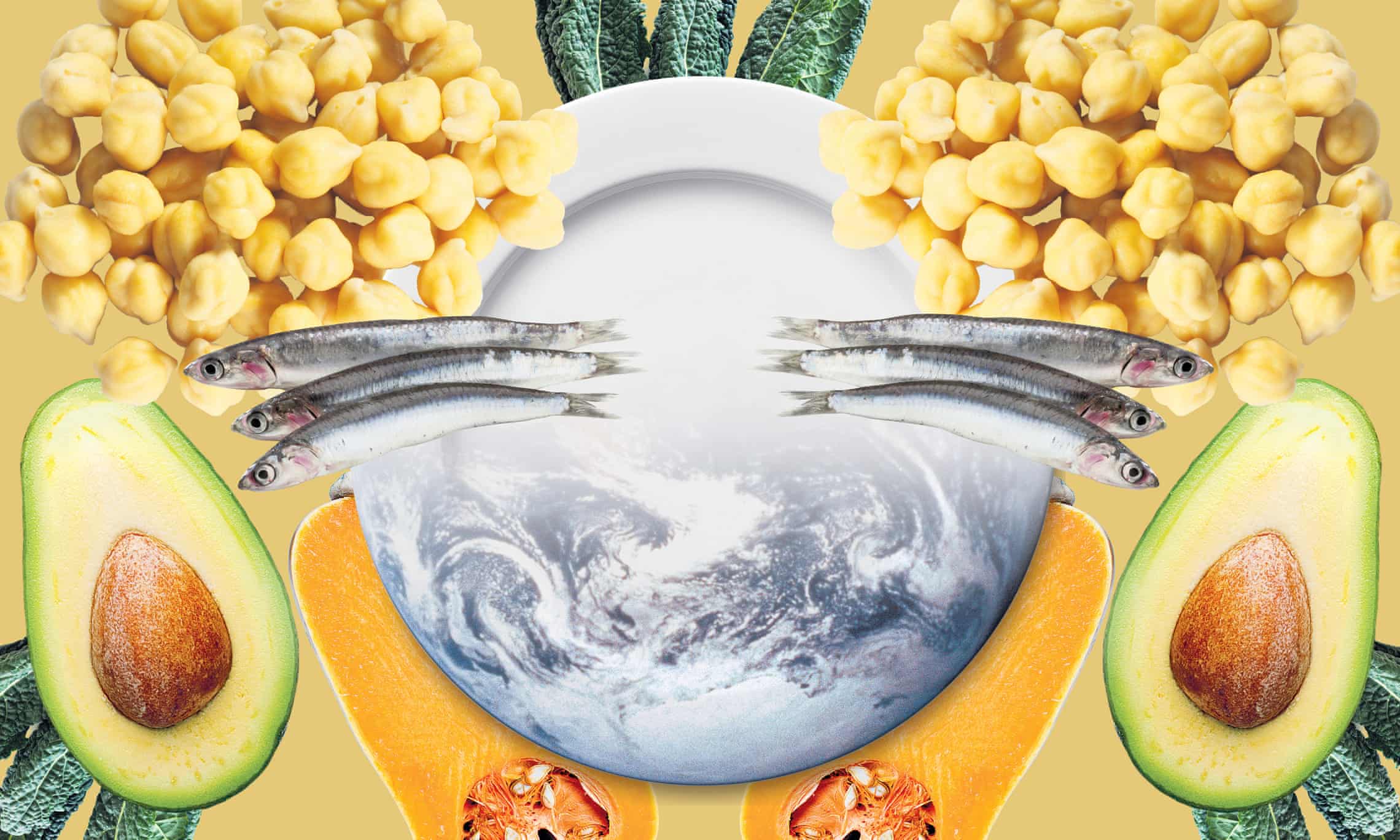
'A complete overhaul of what we eat may be the only way to meet the needs of a planet in crisis. So what’s on – and off – the menu?'
Photo:theguardian.com
‘The world faces many challenges over the coming decades, but one of the most significant will be how to feed its expanding global population. By 2050, there will be about 10 billion of us, and how to feed us all, healthily and from sustainable food sources, is something that is already being looked at. The Norway-based thinktank Eat and the British journal the Lancet have teamed up to commission an in-depth, worldwide study, which launches at 35 different locations around the world today, into what it would take to solve this problem – and the ambition is huge.
The commissioners lay out important caveats. Their solution is contingent on global efforts to stabilise population growth, the achievement of the goals laid out in the Paris Agreement on climate change and stemming worldwide changes in land use, among other things. But they are clear that it depends on far more than just these basic requirements. The initial report presents a flexible daily diet for all food groups based on the best health science, which also limits the impact of food production on the planet.
To anyone who has spent any time trying to figure out how to eat healthily, economically, ethically and compassionately, this might sound too good to be true. Indeed, the debate around how one should eat is so fraught as to now be dubbed the nutrition wars. Should one eat omnivorously, organic and local, or go vegan? Is dairy milk production worse than California almond milk in terms of fresh water usage and carbon miles – and what about in terms of calcium? Which is better, farmed fish, wild fish or no fish? There are times when chickpeas feel like the only safe way to go.
The Eat-Lancet report posits that the global food system is broken. From the numbers quoted alone, it is hard to disagree: more than 2 billion people are micronutrient deficient, and almost 1 billion go hungry, while 2.1 billion adults are overweight or obese. Unhealthy diets are, it says, “the largest global burden of disease”, and pose a greater risk to morbidity and mortality than “unsafe sex, alcohol, drug, and tobacco use combined”. The planet isn’t faring any better. Introducing the commission under the title Acting in the Anthropocene, the Lancet firmly places that global food system within the framework of human impact on both climate and the environment that has caused geologists to rethink how they work: we are not (yet) extinct, but we have an era named after us. And what we are eating has a lot to do with that. Food production, the report states, “is the largest source of environmental degradation”.
So how does the commission propose to fix this?
It has identified a daily win-win diet – good for health, good for the environment – that is loosely based on the much-lauded Mediterranean diet, but with fewer eggs, less meat and fish, and next to no sugar. Dairy is, for western populations anyway, going to be a sticking point, because the suggested diet does not include much. Crucially, it does include a range of foodstuff types that are adaptable, in theory, to the cuisines (potato or cassava; palm-oil-based, say, or soy-rich) and primary dietary restrictions (omnivore, no pork, pescatarian, vegetarian, vegan) found across the world. It can most likely be made to work for other free-froms, although the list of what to eat clearly needs to be road-tested by everyone to be proved to be workable – or not. The diet also omits many things people cook with, from alcohol and seaweed to dried fruit and coconut milk (botanists call the coconut a drupe, and nutritionists, variously, a nut, a fruit and a seed, so go figure which category its milk fits into).
Plant-based diet can fight climate change - UN
The following, therefore, is a rough estimate of what someone in Britain might eat over a seven-day period. A full month’s diet plan would be a better illustration, given that the daily ration of red meat stands at 7g (with an allowable range of 0-14g); unless you are creative enough to make a small steak feed two football sides and their subs, you will only be eating one once a month. Similarly, you are allocated little more than two chicken breast fillets and three eggs every fortnight and two tins of tuna or 1.5 salmon fillets a week. Per day, you get 250g of full-fat milk products (milk, butter, yoghurt, cheese): the average splash of milk in not very milky tea is 30g.
The diet functions on the basis of 2,500 kcal daily, which corresponds, the report says, to the average energy needs of a 70kg (11st) man and a 60kg (9½st) woman, both aged 30, with moderate to high levels of physical activity. To date, however, governmental guidelines, such as those published this week by the British Nutrition Foundation, specify 2,000 kcal for women.
WE CAN FEED THE WORLD AND SAVE THE PLANET WITH THIS ONE FOOD
Of course, and to reinforce how sobering is the global perspective the study brings to the question “what’s for dinner?”, this diet isn’t even that taxing. It is still more food – way, way more – than two billion people currently have access to. If making sacrifices to eat this way brings about even a small measure of the change it is meant to, it could have a huge impact around the world…’- Continue to read
What kind of world do we want to sustain?
Can You Hear us and Mother Earth Crying?
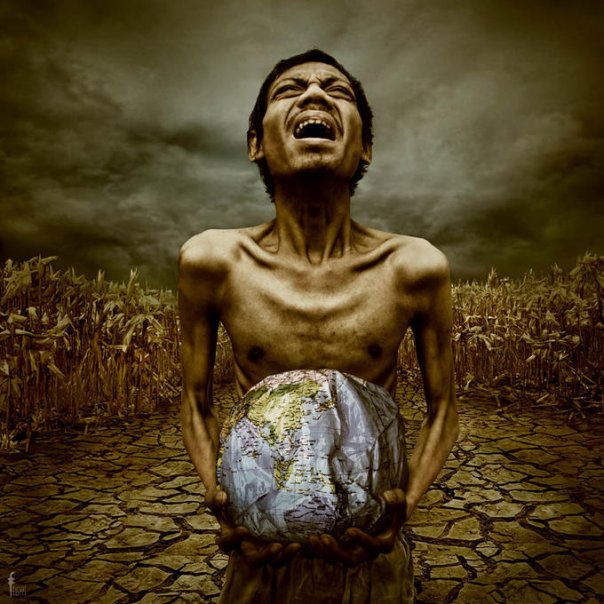
A painting by Berrin Duma. Photo: turkishpaintings.com
Corporate visions of sustainability focus on material prosperity – but leaders must respect the soul as well as the soil
“As our world stumbles to the brink of ecological collapse, the "tipping point" of irreversible climate change, sustainability has become a vital issue. But in order to consider the question of sustainability, it is important to begin with the question: who or what is being sustained?
Does sustainability refer to sustained economic growth, and an environment that is able to maintain the status quo with our energy-intensive, consumer driven needs? Or does sustainability refer to the whole ecosystem, an interconnected web of life with its vast and rich diversity of species? What is the relationship between sustainability and the economy?
Mother Earth is Crying: A Path to Spiritual Ecology and Sustainability
See also: Anthea Lawson, We Owe it to Our Humanity to hear you, to emulate you
The Message to the World: Time is running out for a world at risk of war with itself, destroying the only collective home we have, Our Sacred Earth
The Time is Now to Take Action.
‘Time is running out for a world at risk…threats that were considered inconceivable, no longer are.’
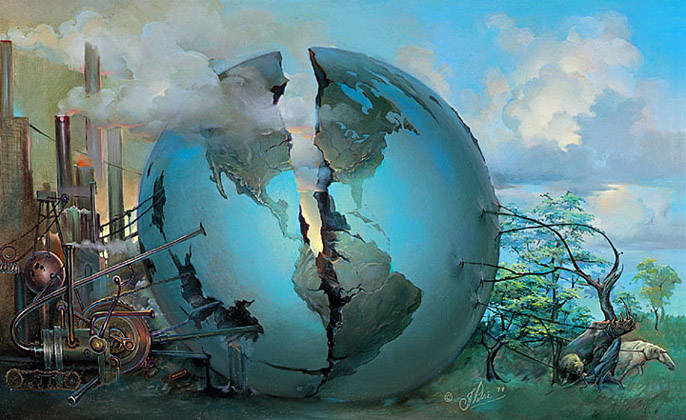
Photo:littlesun.canalblog.com
‘The climate crisis is damaging the ability of the land to sustain humanity, with cascading risks becoming increasingly severe as global temperatures rise, according to a landmark UN report compiled by some of the world’s top scientists.
Global heating is increasing droughts, soil erosion and wildfires while diminishing crop yields in the tropics and thawing permafrost near the poles, says the report by the Intergovernmental Panel on Climate Change…’Climate crisis reducing land’s ability to sustain humanity, says IPCC
A Call to Action from Our Children and Grandchildren.
We Must Not Let Them Down!
On September 20, three days before the UN Climate Summit in NYC, young people and adults will strike all across the US and the world to demand transformative action be taken to address the climate crisis. To learn more, sign up to host a strike, or receive updates see below:
‘We, as a global society, are at a crossroads. We have a decision to make. Are we going to choose money or power or are we going to choose the future? The September 20 strike is an invitation to everyone to choose us. Choose the kids, choose humanity, choose the future.’...WE, THE FUTURE GENERATION, ASK YOU TO CHOOSE US
- Details
- Written by: Kamran Mofid
- Hits: 1747
Anthea Lawson, A Warrior, Campaigner and Activist for the Common Good
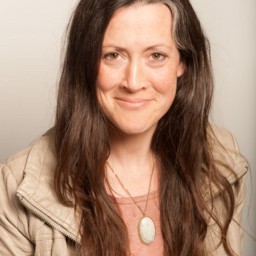
Photo:medium.com
Our Sacred Earth and Mother Nature in Need of More People like Anthea Lawson
A Statement to the Court by a First-Time Lawbreaker
‘Anthea Lawson was arrested for protesting in London with Extinction Rebellion against Government action on climate change. Here she shares the statement that she read in court.’++
But first lest we forget ‘that only 1.5 per cent of accused rapists are now being prosecuted in the UK. Yet one hundred percent of the people who are trying to preserve life for our grandchildren, for our brothers and sisters in other countries who are already struggling with drought and deluge — one hundred percent of us are being prosecuted.’
Earlier this week at City of London Magistrates Court I pleaded guilty to a criminal offence: a breach of Section 14 of the Public Order Act 1986, by sitting on Waterloo Bridge and refusing to move during the Extinction Rebellion protests in London in April this year.
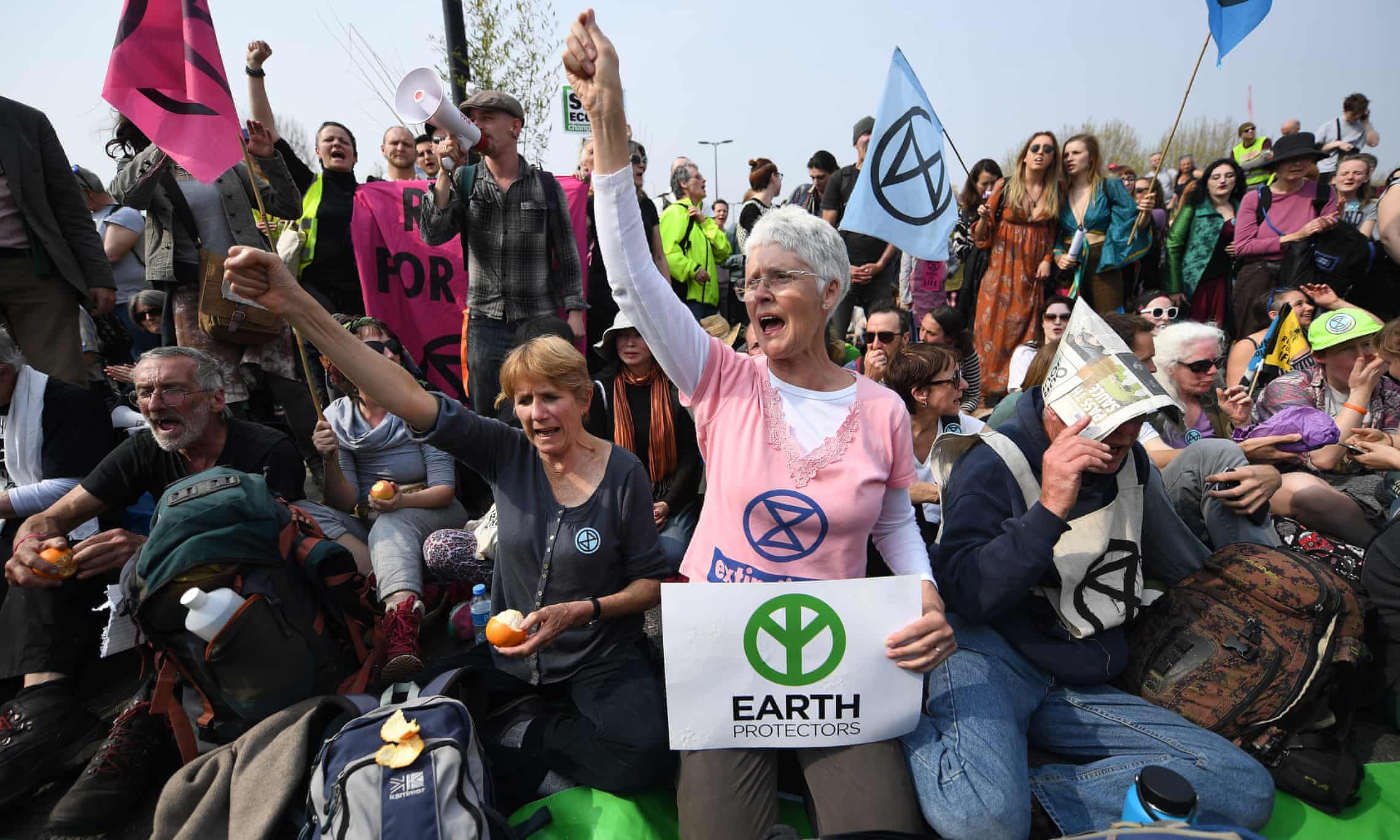
‘Extinction Rebellion climate change protesters occupy Waterloo Bridge in London’
Photo: Battle of Waterloo Bridge: a week of Extinction Rebellion protests
Over 1000 Extinction Rebellion Activists Were Arrested In April – This Is What Happened To Them
This felt like an extraordinary thing to do: both doing it in the first place, and then appearing in a court to be sentenced for it. (The sentence was a six month conditional discharge plus court costs.)
I’m sharing here the statement I made to the court. It seems unlikely to have made any difference to the outcome: there were nine of us in court together, all pleading guilty. Some made statements and some didn’t, and we all received the same sentence, which, with so many of us being prosecuted for the same offence, had no doubt been decided in advance. But still, it was an opportunity to speak my mind, and so I did. Here is what I said:
A Statement to the Court by a First-Time Lawbreaker
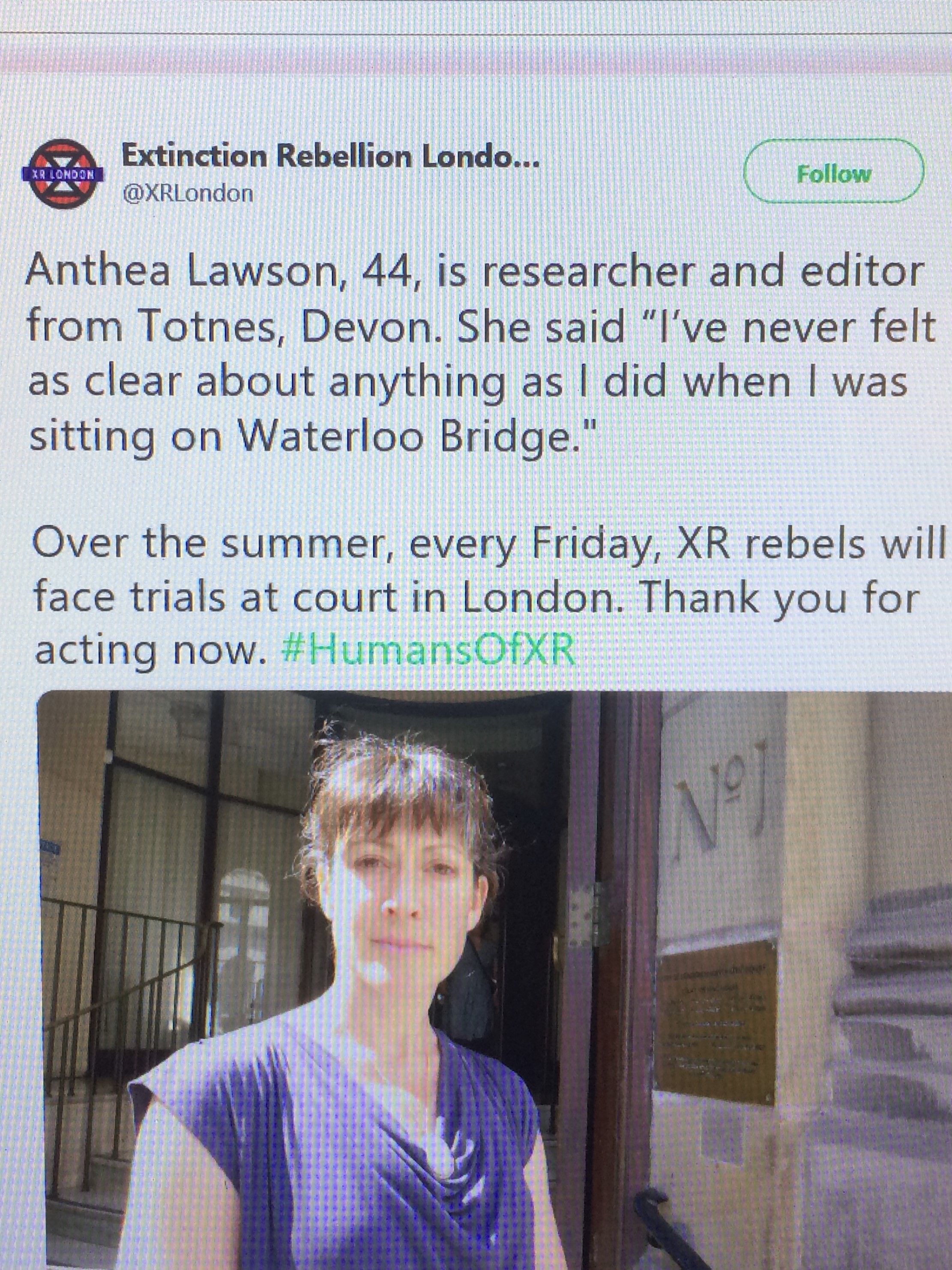
“I am pleading guilty to the offence with which I am charged, for reasons that are to do with not taking up more time, either my own or the court’s. But I would like to say a bit about why I did it.
“I have great respect for the rule of law, and have always lived by it. My mother was a magistrate for twenty years, and I grew up to respect the authority of the state. I trained as a journalist and sat on the reporters’ bench observing court rules in what I wrote for my newspaper. I lived and worked in Sierra Leone shortly after the end of its civil war and saw, first hand, the appalling consequences when the rule of law fails entirely.
In May a World Wildlife Fund report found that nature is being eroded at rates unprecedented in human history.
“My work, for a decade after that, was for an organisation that investigated corruption in the natural resource industries: oil, diamonds, timber. I used my investigations to call for the law to be used against the bankers and company executives who were facilitating corruption — a form of corruption that decimated the health and education budgets of some of the poorest countries in the world. I proposed new laws where there were gaps; I was in and out of the Treasury; I was in years-long conversations with the Economist and the Financial Times lobbying for a new regulation on disclosure of the real beneficial owners of companies, that is now becoming law in, at the latest count, 42 countries.
“So it is a measure of the seriousness of the situation that I have been willing to break the law as part of a protest. I have not done this lightly. I have felt extremely uncomfortable throughout the process of protesting, arrest, custody and now standing here before you. I know that I have caused difficulties for those who encountered the protests, and for the legal system.
“But what I did feels like the only thing left to try. I am talking here about the existential threat posed by climate change and species extinctions to life as we know it. I’m talking about failing harvests, mass deaths, the breakdown of civil order. The conclusions of the Intergovernmental Panel on Climate Change last October are available for anyone to see, and have been widely reported. ‘Limiting global warming to 1.5°C would require rapid, far-reaching and unprecedented changes in all aspects of society,’ said its summary for policymakers last year. This means CO2 emissions need to decline by about 45% from 2010 levels by 2030, to reach net zero by 2050. That’s the figure of 12 years, as a deadline to turn things round, that is being talked about.
We should be mobilising rapidly to change our energy use, change the way we build houses and design cities, change our transport habits, change how we grow and transport food, in ways that go far beyond what individuals or families can do themselves.
“Also widely reported are the rates of wildlife decline. In the same month, October last year, the World Wildlife Fund reported that 60% of the world’s vertebrate animals have been wiped out since 1970 — that’s in my life-time. Professor Robert Watson, an eminent environmental scientist and chair of an intergovernmental panel on biodiversity, said that the destruction of nature is as dangerous as climate change. The panel’s report in May this year found that nature is being eroded at rates unprecedented in human history. One millions species are faced with extinction.
“And yet there is no commensurate action from the government. Faced with information like this, we should be mobilising rapidly, as the IPCC report suggests, to change our energy use, change the way we build houses and design cities, change our transport habits, change how we grow and transport food, in ways that go far beyond what individuals or families can do themselves. But it is not happening. On the contrary, the government continues to subsidise fossil fuel use; to approve a third runway at Heathrow.
“A troubling dimension of these threats is that they are already present for those who have long been on the sharp end of a colonial and then globalised economic system. People in the poorest countries in the world are already experiencing drought, flood and destruction from the climate change that is already happening.
“I have spent twenty years doing lawful campaigning. I have marched, written letters, organised coalitions of hundreds of organisations, lobbied in the corridors of the UN during international negotiations, researched and published reports, run press offices for campaign groups, written op-eds in major newspapers, appeared as a commentator on the BBC, Sky News, Al Jazeera, testified to Parliament here and to a Senate inquiry in the US.
It is now clear that what we need, to ensure the survival of life on earth, is far more than such tweaks; we need a complete overhaul of how we live, how we power our lives.
“I know from this experience, how difficult it is to achieve change. And the change I was trying to achieve, when I was doing all those things, was not as threatening to the fossil fuel-powered status quo as what we now need to do. I was asking, then, for tweaks to our economic system; to make it slightly less abusive in its impacts, to make it play a bit more nicely.
“But it is now clear that what we need, to ensure the survival of life on earth, is far more than such tweaks; we need a complete overhaul of how we live, how we power our lives. And the difficulty of obtaining even those tweaks that I achieved, the resistance from those who benefit financially from the status quo, tells me that we don’t have time to apply these methods to such a greater challenge.
“When I sat down on Waterloo Bridge with Extinction Rebellion, I have never been clearer about what I was doing. I understand that we caused disruption that caused difficulty, and I am sad and sorry for that. I do wish that it was not necessary. I understand that in taking these actions I have taken police and court resources that are needed, pressingly, elsewhere, and I am sorry for that, too.
“But I also note that a decision has been made to prosecute everyone involved for this small offence. It was reported last week that only 1.5 per cent of accused rapists are now being prosecuted in the UK. Yet one hundred percent of the people who are trying to preserve life for our grandchildren, for our brothers and sisters in other countries who are already struggling with drought and deluge — one hundred percent of us are being prosecuted.
Somebody has made that decision. It appears to be a political decision, made to deter protest.
“Somebody has made that decision. It appears to be a political decision, made to deter protest, and I can only speculate about whether it was made by people who have not yet lowered their psychological defences to take on board what we need to do, together, to protect our grandchildren and great-grandchildren.
“But I made a decision, too: to take action in the service of life; to be a good ancestor; to sit on Waterloo Bridge; to be standing here today, however uncomfortable it feels."
***
Big thanks to my friend Mira for putting me up in London the night before the hearing. She quite rightly asked me to explain to her children why I did what I did, and also to explain why their brown-skinned mother is choosing not to protest in the same way as her white-skinned friend: because she can’t be confident that she will be treated reasonably by an institutionally racist police force.
Words by Anthea Lawson
Anthea Lawson is investigating the inner life of activism with Perspectiva. She is writing a book, The Entangled Activist, to be published by Perspectiva Press.
++This statement was published in Emerge
Thank you Extinction Rebellion for being a source of inspiration, a beacon of hope to all those who value life, nature and our sacred Mother Earth. We, too, at the GCGI, share your values and zest for life, beauty and wisdom.
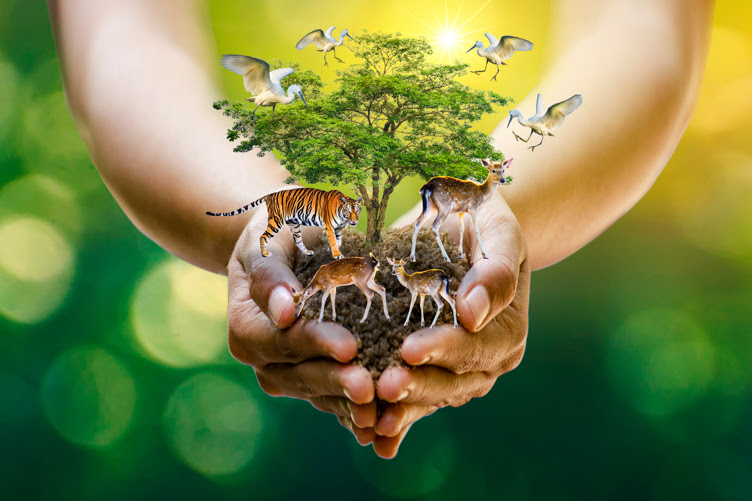
Photo: Stock
At the GCGI we believe every child, young person, students, their teachers, and indeed, everybody, should have regular opportunities and ease of access to connect with nature, so they can learn to value it, appreciate it, enjoy it, prioritise it and take action to save it.
“Be like the sun for grace and mercy.
Be like the night to cover others’ faults.
Be like running water for generosity.
Be like death for rage and anger.
Be like the Earth for modesty.
Appear as you are.
Be as you appear.”-Rumi
Desperately seeking Sophia: The Wisdom of Nature
Nature heals, Nature soothes, Nature restores, Nature connects: Yes, Nature is what makes us Human!
Are you physically and emotionally drained? I know of a good and cost-free solution!
The Message to the World: Time is running out for a world at risk of war with itself, destroying the only collective home we have, Our Sacred Earth
The Time is Now to Take Action.
‘Time is running out for a world at risk…threats that were considered inconceivable, no longer are.’

Photo:littlesun.canalblog.com
‘The climate crisis is damaging the ability of the land to sustain humanity, with cascading risks becoming increasingly severe as global temperatures rise, according to a landmark UN report compiled by some of the world’s top scientists.
Global heating is increasing droughts, soil erosion and wildfires while diminishing crop yields in the tropics and thawing permafrost near the poles, says the report by the Intergovernmental Panel on Climate Change…’Climate crisis reducing land’s ability to sustain humanity, says IPCC
A Call to Action from Our Children and Grandchildren.
We Must Not Let Them Down!

On September 20, three days before the UN Climate Summit in NYC, young people and adults will strike all across the US and the world to demand transformative action be taken to address the climate crisis. To learn more, sign up to host a strike, or receive updates see below:
‘We, as a global society, are at a crossroads. We have a decision to make. Are we going to choose money or power or are we going to choose the future? The September 20 strike is an invitation to everyone to choose us. Choose the kids, choose humanity, choose the future.’...WE, THE FUTURE GENERATION, ASK YOU TO CHOOSE US
- Details
- Written by: Kamran Mofid
- Hits: 2302
Poverty, Destitution, Hunger and Homelessness in the Midst of Plenty
This is nothing, but a manifestation of a cruel and inhumane state of affairs
‘A swathe of public opinion has turned cruel. ‘They just don’t give a shit,’ a woman who’s been living on the streets told me.’-John Harris
'A different world cannot be built by indifferent people.'
“To ignore evil is to become an accomplice to it”- Martin Luther King
“The only thing necessary for the triumph of evil is for good men to do nothing”- Edmund Burke
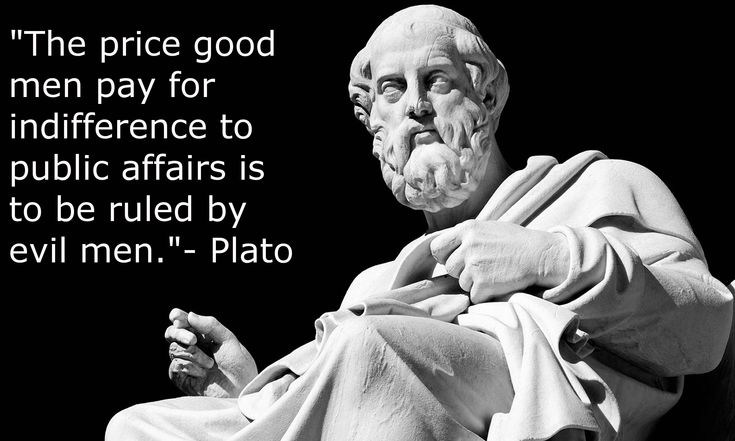
Photo:pintereset.com
‘Using austerity as a cloak, the Westminster Government has overturned any lingering notion of the common good, national solidarity or ethical based politics...The relationship between our politics, our ethics and our public life remain at the heart of this inequality and poverty story.’ -Poverty amid plenty
UK austerity has inflicted 'great misery' on citizens, UN says
- Come and meet the Team Human, My Favorite Team
- The tragedy of India copying the ways of the US and the UK
- World in Chaos and Despair: The Healing Power of Interfaith Spiritual Music
- The Disintegration of this Disunited Kingdom- Canon Dr Paul Oestreicher
- What is religion if less and less people are believing it?
